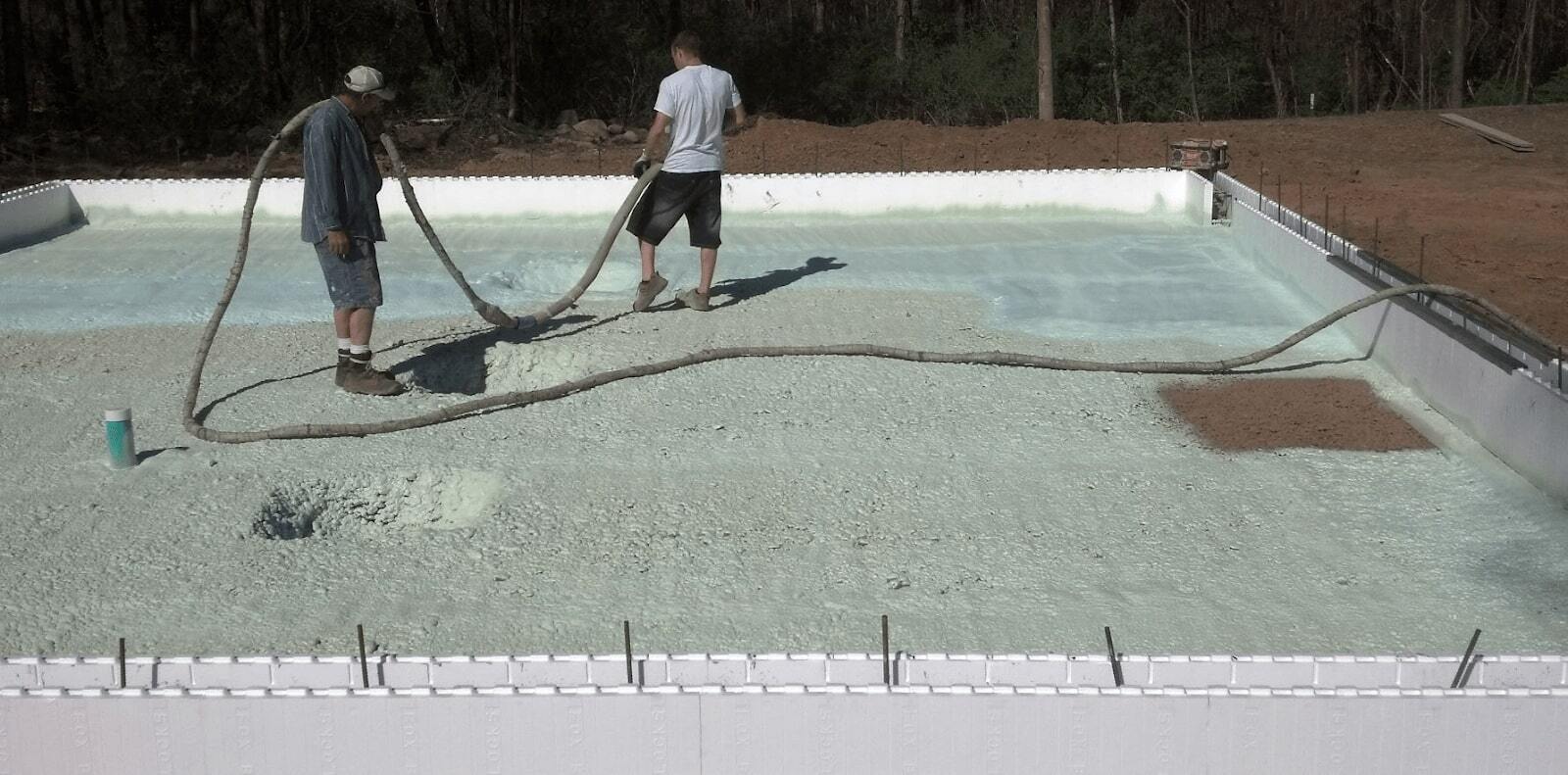
What is the Cost to Build an ICF Pool?

Insulated concrete form (ICF) construction has been growing in popularity for walls and basements, and people are learning about all the benefits that ICF brings to pool construction.
Before deciding on what materials to use for your pool, make sure you know all of the options that are available. If a low-maintenance, energy-efficient pool is what you are looking for, then ICF should be at the top of your list.

What Are Insulated Concrete Forms?
Insulated concrete forms are assembled blocks as panels of sheets of expanded polystyrene foam held together with a space in the middle by specialized ties. The ICF blocks, as they are called, can be stacked together with rebar placed in between. Once the foam blocks are stacked and tied together in the desired shape, concrete is used to fill the cavity in between the foam.

Once the concrete sets, what is left is an incredibly durable steel-reinforced structure. The double layers of built-in insulation also make ICF blocks incredibly energy efficient.
When used for pool construction, ICF pools are high-quality, energy-efficient, and low maintenance pools.
ICF is More Versatile
Because ICF blocks are made from foam with the concrete pumped in after, installation can be a lot easier than other pool fabrication methods. Putting a pool in a small backyard where heavy machinery cannot access or on a slope may make ICF your only option anyway.

The flexibility of ICF gives you more flexibility in the shape and design of your pool too. Arches, curves, and many other shapes are within reach when using ICF. ICF blocks can be cut easily, so adding components like lights, skimmers, electrical, and plumbing components is very easy.
Are ICF Pools Cheaper to Operate?
If you plan to heat your pool, ICF construction is a no-brainer. The incredible insulation efficiency of ICF blocks coupled with the thermal mass of the steel-reinforced concrete means more heat will stay in the water where it should be. Other types of pool construction will let much of that heat seep out into the earth around the pool, causing your energy bill to increase or your pool to get colder.
Even if you won’t be heating your pool, ICF construction lets your family get even more use out of the pool. Due to ICF construction’s incredible ability to retain heat, your pool will stay usable for longer even as temperatures begin to drop.
Are There Any Savings to Building an ICF Pool?
ICF pool constructions can save money both on the materials used and in the labor for installation.
Material Costs
Even though ICF structures are more durable, often with an expected lifespan of 200 years or more, the costs are also very economical. The concrete is typically locally produced and the benefit of the ICF blocks is that they are mass-produced in order to keep costs low. After the concrete is set, a plaster layer is applied over the foam. The plaster layer is usually about ½” thick and does not add very much cost to the entire project. An ICF pool can be finished with any typical pool finishing materials - plaster, tile, vinyl or specialty coating.
Labor Savings
One of the ways ICF blocks help keep the costs low is through labor savings. ICF construction does not require any skilled labor like a Gunite or Shotcrete pool would require. ICF construction is much easier to build and the foam blocks stack quickly.
When excavating to install an ICF pool, much less precision is needed. There has to be enough room to stack the blocks, but the hole does not have to be perfect like it must for other types of pool construction. Any excess dirt that is removed is simply added back in once the ICF blocks are set.
What’s the Cost to Build an ICF Pool?
Building an ICF pool gives you a trifecta of lower costs: they cost less to build, cost less to operate, and eliminate the need for expensive future repairs. ICF pools use less materials than other pool construction methods and the ICF blocks are easy to build with. Both of those aspects keep the initial costs of pool construction low. The excellent insulation and thermal mass from an ICF pool help ensure that heat loss and energy usage of the pool are both reduced.


Finally, ICF pools are so durable that they require fewer repairs than other pool types. Traditional pools often have to be resurfaced when traditional concrete weakens. The built in continuous layer of EPS foam protects the concrete used in an ICF pool, so that the pool will last for many, many years to come.
Use Fox Blocks for Your ICF Pool Construction
If a high quality, energy-efficient, and low-maintenance pool sounds like something you’d be interested in, then check out Fox Blocks. Their ICF block solution will keep the costs low on your pool project, let the pool be built faster, and provide an enjoyable environment for your family for many years to come.
To learn more about how Fox Blocks can make your pool project better, reach out to the team today.